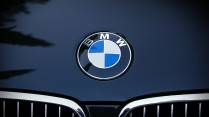U.S. auto regulator seeks nationwide recall of Takata air bags
By JULIA EDWARDS AND ERIC BEECH
Nov 19, 2014 11:21 AM EST

The U.S. auto safety regulator has told Japanese supplier Takata Corp (7312.T) and five automakers to expand nationwide a regional recall of potentially lethal air bags, increasing pressure on the industry to move faster in a growing scandal.
The National Highway Traffic Safety Administration (NHTSA) also scolded Takata for what it called "an unwillingness to move forward" on a nationwide recall, and said the company needs to be open with the U.S. public about the risks of its air bags.
Takata and automakers have so far taken a targeted approach in recalling U.S. vehicles with air bags that can rupture upon deployment, shooting shrapnel into the car. Five fatalities, including four in the United States, have been linked to the air bags.
The U.S. regional recall has involved 4.1 million cars in hot and humid areas where the air bags may be prone to fail, including Florida, Alabama, Mississippi, Georgia, Louisiana and parts of Texas along the Gulf of Mexico. Most of those cars are made by Honda Motor (7267.T), Takata's biggest client.
In a call with reporters on Tuesday, NHTSA Deputy Administrator David Friedman declined to estimate how many more cars would be included in a nationwide recall.
Shares in Takata dropped by as much as 7.8 percent in Tokyo on Wednesday, and have now slid 64 percent this year to 5-1/2-year lows.
Takata has already set aside more than $750 million for recall-related costs, but Takayuki Atake, manager of credit research at SMBC Nikko Securities, warned a national recall would need more provisioning and raised the risk of a deeper credit rating downgrade than initially expected.
Japan Credit Rating Agency has put Takata's single-A rating on negative watch. "However, risk of a (three-notch) downgrade to BBB would increase if the expanded recall leads to further erosion of shareholder equity and/or a negative impact on Takata's capacity for generating profits and cash flow," Atake wrote in a report.
Takata, NHTSA, Honda and Chrysler have been called to testify at a U.S. Senate Commerce Committee hearing on Thursday, where Takata will be represented by Hiroshi Shimizu, a 36-year company veteran and senior vice president of global quality assurance.
MILLIONS MORE?
Around 16 million cars with Takata air bags have been recalled worldwide over the past six years, with more than 10 million of those in the United States.
NHTSA's Friedman said the recall expansion was prompted by an August incident involving a 2007 Ford (F.N) Mustang in North Carolina, outside the area of the regional recalls.
The agency ordered Ford, Mazda Motor (7261.T), Honda, Chrysler (FCHA.MI) and BMW (BMWG.DE) to send notifications for replacement driver-side air bags to consumers quickly. "We will begin a process both with Takata and the automakers to force them to recall all affected" vehicles, Friedman said.
Ford, Honda, Mazda and Chrysler said they would continue to cooperate with NHTSA and plan to evaluate their call for a national recall. But each stopped short of saying they would expand beyond the current set of cars they are fixing. BMW is already recalling air bags nationally.
Spokesman Alby Berman said Takata would cooperate with regulators and automakers if an expanded recall is required, but noted that "of almost 1,000 passenger and driver inflators from outside the high humidity areas that have been evaluated to date, none have ruptured."
"Takata is concerned that a national recall could potentially divert replacement air bags from where they're needed, putting lives at risk," he said in a statement.
It's unclear just how long it could take to replace so many air bags. NHTSA said it is pressuring Takata to ramp up production of replacement parts and has said it will explore using other suppliers to help with production if needed.
Takata has said it would add two production lines at its Monclova, Mexico plant in January to make replacement air bag inflators. Workers there have told Reuters that a single line has a typical quota of around 200 inflators an hour, meaning it could take five months to make 1 million inflators working around the clock on two lines, five days a week.
NOT ENOUGH
Auto safety advocates and lawmakers said NHTSA's latest move may still not capture the scope of the problem, is too late, and may not be enforceable.
Democratic Senators Ed Markey and Richard Blumenthal said they were pleased NHTSA recognized the "national scope" of the problem," but said the call to replace driver-side air bags should be expanded to also include passenger air bags.
NHTSA agreed in June to allow automakers to do a regional recall and use their discretion in deciding how and when to notify customers and replace faulty parts, resulting in confusion for car owners receiving mixed messages. [ID:nL1N0SW38P]
Friedman criticized Takata for resisting when NHTSA this week called on it to issue a defect notification nationwide for air bags of a certain design. "Takata's initial response was an unwillingness to move forward, and frankly, that is one of the reasons we are talking to you today, because I believe everyone needs to understand that Takata needs to act," he said.
Asked about Friedman's comment, Takata said: "We have been dealing sincerely with U.S. authorities and ... will continue to do so, prioritizing customers' safety."
NHTSA also addressed lingering confusion over what exactly makes some air bags explode. It said it ordered Takata to provide under oath documents and information on the propellant used in newly designed air bag inflators, after Takata recently said it had changed the chemical mix of its inflators.
Copyright @ MOTORTIMES, All rights reserved. Do not reproduce without permission.








